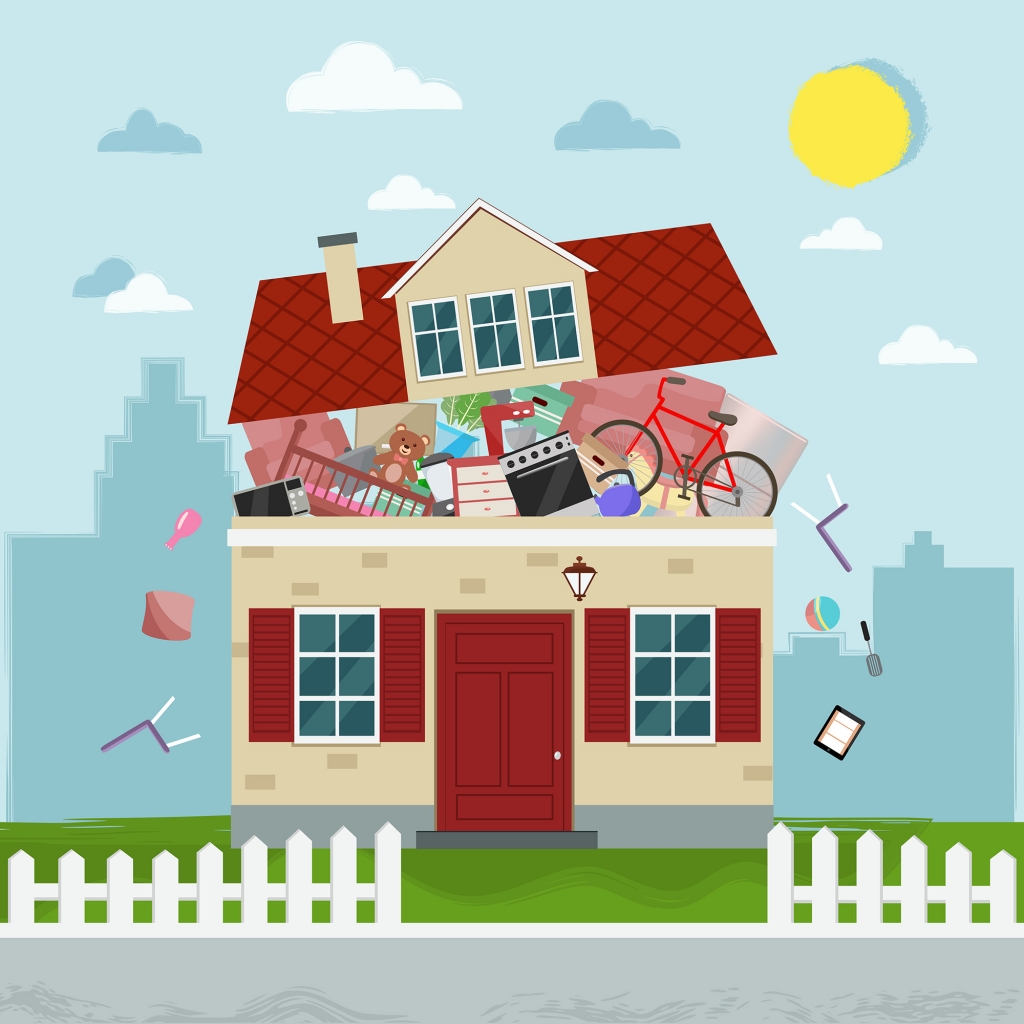Help for Hoarders – 5 Signs It’s Time to Treat the Problem
 If you are seeking information about help for hoarders, then chances are that you already know that there’s a problem.
If you are seeking information about help for hoarders, then chances are that you already know that there’s a problem.
However, it can be tough to know for sure whether or not it’s time to seek help.
Hoarding behavior is progressive. In other words, it starts out small, and it adds up over time. When you are in the midst of dealing with it, you can easily acclimate to each stage of the condition. In other words, you don’t necessarily see when clutter crosses over into hoard.
However, hoarding is a type of anxiety disorder. As with other forms of anxiety, it generally won’t go away untreated. In fact, if you try to ignore it or avoid it, then it usually just gets worse.
How to Know It’s Time to Seek Help for Hoarders
It’s a coping mechanism, and the only way to get past the problem is to deal with the underlying issue that you’re attempting to cope with.
Here are five signs that it’s time to treat the problem and get help for hoarding:
1. You Wish Things Were Different but Don’t Know Where to Begin
What happens when you walk into the hoarded home or hoarded areas of the home?
Do you look at it, wish it were different, then walk away because it’s all just too overwhelming?
Have you ever wanted to just burn the whole mess down, and yet the idea of losing it all was equally devastating?
If you wish that things were different but trying to make a change feels impossible then it’s time to get help.
2. Feeling Defensive About the Hoard Is a Warning Sign
Even if you know that you might be hoarding, you get defensive when other people bring it up.
As soon as someone mentions cleaning up, throwing things away, or making a change in the house, your walls go up. You dig your heels in and double down.
In other words, it terrifies you to think of someone else coming into your home and taking your things away. Those are all warning signs that it’s time to seek some help, even though that feels exactly like the last thing you want to do.
3. You Don’t Know Where Important Things Are or You Can’t Access Them
Some people have a lot of clutter in their homes, but it’s organized and accessible. In contrast, when clutter creeps up into hoarding, it becomes increasingly difficult to find the things that you want when you need them.
For example, if you have to buy a product you already own because you can’t find the original one, then it’s time to seek help. If there are parts of your home that are completely inaccessible, then it’s time to seek help.
Likewise, if you have ever lost money, important paperwork, or things of sentimental value because they’re buried under things of little or no value, then it’s time to seek help for hoarders.
4. You Can’t Fully and Properly Care for Kids and Pets in the Home
What would happen if Child Protective Services came to your home? How about if Animal Control showed up? If those thoughts fill you with terror, then chances are that something is wrong in the house.
Children and pets both need safe, sanitary spaces where they can thrive. They need easy access to clean food and water, a place to sleep soundly, and a place away from the rest of the house where they can use the bathroom.
Additionally, they need regular medical care. If you are unable to provide physically or financially for the kids and pets in your home, then it’s time to seek help.
5. When the Hoard Impairs Functioning
One of the main criteria for diagnosing nearly all mental health disorders is that the issue is impacting the individual’s ability to fully function in their lives.
Therefore, if the clutter, the shame of hoarding, or other aspects of the condition are limiting your quality of life, then it’s time to get help.
For example, it’s time to get help for hoarders if:
• Hoarding prevents you from success in work or school.
• You miss appointments, events, and social activities because of the hoard.
• You often isolate because of feelings about the hoard.
• It’s tough to maintain regular hygiene practices in the home.
• Your physical health is suffering as a result of the home’s conditions.
• Hoarding has negatively impacted your close relationships.
• Hoarding, accompanied by shopping, has eaten away at your finances.
—
If you are seeking help for hoarding, then you might want to consider cognitive behavioral therapy. It’s one of the most common and successful treatments for hoarding.
Learn more about our services here and reach out for more information today.
